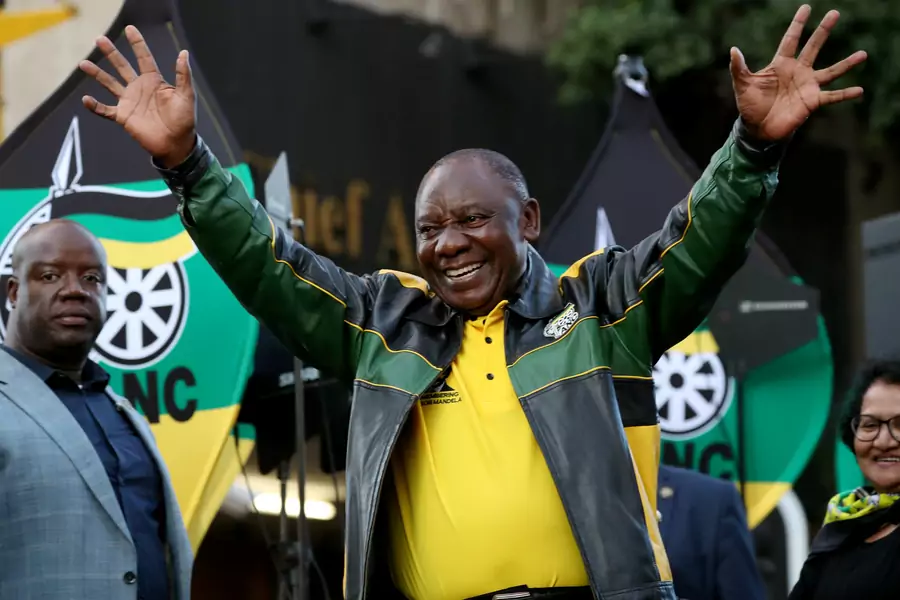South Africa’s ruling party, the ANC has embarked on a search for allies to help it form a new government after shockingly losing its three-decade-old absolute majority in a watershed election.
President Cyril Ramaphosa’s African National Congress had just 40% of the votes after 99 percent of the votes from Wednesday’s election were counted, a precipitous decline from the 57.5 percent it had won in 2019.
As the ANC has held an absolute majority since 1994, when liberation leader Nelson Mandela led the country out of white-minority rule and into democracy, this is a historic turning point for South Africa.
The ANC must now either negotiate a coalition government, or at least persuade other parties to back Ramaphosa’s re-election in parliament to allow him to form a minority government reliant on other parties for support to pass budgets and legislation.
“We have been talking with everybody even before the election,” ANC’s deputy secretary general Nomvula Mokonyane said, saying the party’s NEC decision-making body would meet to decide on a course of action after final results are announced.
“It’s about ensuring that the stability both in government and stability in our country.”
Read Also: South Africa Urges ICJ To Order Israel To Withdraw From Rafah
She would not be drawn on whether the party might replace Ramaphosa after the party’s record poor showing, saying: “For now, it’s not an issue.”
As votes continued to be validated, data from the Independent Electoral Commission (IEC) showed the centre-right Democratic Alliance (DA) held second place with 21.71 percent, slightly up on its 20.77 showing in 2019.
The party, which governs Western Cape province and has promised a free market agenda at odds with the ANC’s left-wing traditions.
Asked about the chances of a coalition with the ANC, Helen Zille, the DA party chairwoman, said: “Negotiations haven’t started but some channels have been opened, individuals talking to individuals.”
She also did not rule out allowing the ANC to attempt to rule alone, telling AFP: “A minority government would be something completely new in South Africa but it is an option amongst others”
But it was not a surge by the DA that cut into the ANC’s vote share.
In third place was former president Jacob Zuma’s uMkhonto weSizwe (MK) on 12.6 percent, a surprise score for a party founded just months ago as a vehicle for the former ANC chief.
The radical leftist Economic Freedom Fighters (EFF) was in fourth with 9.4 percent.
Malema and Zuma are former ANC members and some observers have suggested that they would be more natural partners for the ruling coalition, a prospect that the DA has branded the “Doomsday Coalition”.
But other analysts, including author Susan Booysen, said the EFF was perceived as “too erratic” and “unpredictable” in its demands.
And the rift between Ramaphosa and Zuma — who has long been bitter about the way he was forced out of office in 2018 — was “too far reaching” to mend, she said.
MK spokesman Nhlamulo Ndhlela seemed to agree. “We will engage with the ANC but not the ANC of Cyril Ramaphosa,” he said.
Any coalition partner should be willing to amend the constitution to enact radical reforms and grant Zuma, who has been declared ineligible over a contempt of court conviction, a pardon, he said.
The ANC retains the loyalty of many voters for its leading role in overthrowing white minority rule.
Its progressive social welfare and black economic empowerment policies are credited by supporters with helping millions of black families out of poverty.
But over three decades of almost unchallenged rule, its leadership has been implicated in a series of large-scale corruption scandals, while the continent’s most industrialised economy has languished and crime and unemployment figures have hit record highs.

